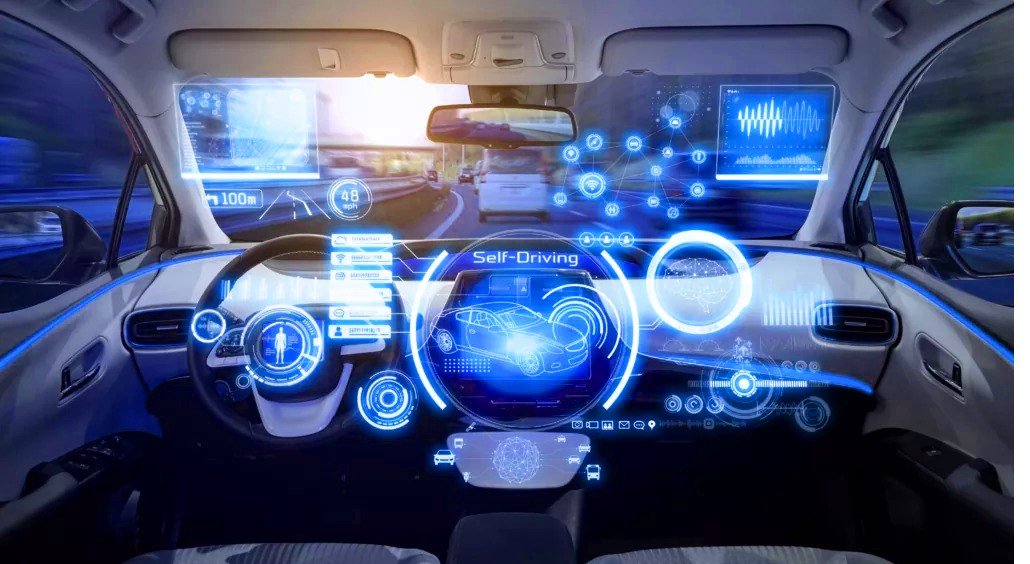The Legal Consequences of Autonomous Vehicles

In an era marked by rapid technological advancements, autonomous vehicles have emerged as a transformative force within the automotive industry. The promise of cars navigating without human intervention brings forth a wave of innovation, but it also triggers a complex web of legal considerations. As self-driving cars become more prevalent, the legal landscape is grappling with challenges related to liability, privacy, and ethical decision-making.
This article delves into the intricate legal consequences associated with autonomous vehicles, exploring the evolving regulatory frameworks, the shifting dynamics of liability, and the ethical dilemmas that arise in a world where artificial intelligence takes the wheel. Join us on a journey through the legal intricacies of autonomous vehicles and the profound impact they have on the way we perceive, regulate, and interact with modern transportation.
Contents
- 1 The Legal Landscape
- 2 Liability Issues
- 3 Privacy Concerns
- 4 Insurance in the Autonomous Era
- 5 Ethical Dilemmas
- 6 International Perspectives on Autonomy
- 7 Enforcement Challenges
- 8 The Role of Artificial Intelligence
- 9 Public Perception and Acceptance
- 10 Potential Legal Reforms
- 11 Government Incentives and Support
- 12 The Future of Autonomous Vehicle Legislation
- 13 Challenges for Legal Professionals
- 14 Conclusion
- 15 FAQs(Legal Consequences of Autonomous Vehicles)
The Legal Landscape
While the promise of autonomous vehicles is exciting, the existing legal landscape is struggling to keep up. Traditional traffic laws were designed with human drivers in mind, raising questions about how autonomous vehicles fit into the current regulatory framework. As a result, lawmakers are faced with the challenge of adapting and creating new laws to govern these self-driving machines.
Liability Issues
One of the central concerns in the realm of autonomous vehicles is determining liability in the event of accidents. With no human driver to hold responsible, the spotlight turns to manufacturers and developers. The question of whether the software, hardware or a combination of both is at fault poses a unique challenge for legal professionals.
Privacy Concerns
As autonomous vehicles collect and utilize vast amounts of data to navigate and make decisions, privacy concerns come to the forefront. Individuals may worry about the potential misuse of personal information, raising questions about the legal safeguards in place to protect user privacy.
Insurance in the Autonomous Era
The rise of autonomous vehicles also prompts a reevaluation of insurance policies. With the reduction of human error in driving, traditional insurance models may undergo significant changes. This includes adjusting premiums and coverage to account for the decreased likelihood of accidents.
Ethical Dilemmas
Programming decisions within autonomous vehicles presents ethical dilemmas. Algorithms must be designed to make split-second decisions, such as choosing between protecting the occupants or pedestrians. The legal framework must address these ethical considerations and establish guidelines for the programming of autonomous systems.
International Perspectives on Autonomy
The legal landscape for autonomous vehicles varies globally. Different countries have adopted diverse regulatory approaches, making international collaboration crucial. Efforts to establish common standards can streamline the deployment of autonomous technology on a global scale.
Enforcement Challenges
Enforcing regulations for autonomous vehicles poses a unique set of challenges for law enforcement. The lack of standardized procedures and the intricacies of autonomous technology make it imperative for authorities to adapt and stay informed to ensure compliance.
Read More: EVERYTHING YOU NEED TO KNOW ABOUT SINGLE-VEHICLE ACCIDENTS (2023)
The Role of Artificial Intelligence
Artificial intelligence plays a pivotal role in the operation of autonomous vehicles. As these systems become more sophisticated, legal professionals must grapple with understanding and navigating the complexities of AI-driven decision-making.
Public Perception and Acceptance
The success of autonomous vehicles hinges on public acceptance. Addressing concerns and building trust are essential components of shaping a positive perception. Legal professionals may play a role in facilitating this process by ensuring transparent communication and advocacy for safety measures.
Potential Legal Reforms
To accommodate the rapid advancements in autonomous technology, legal reforms are on the horizon. Proposals for updating existing laws and creating new frameworks must balance the need for innovation with the imperative to establish legal safeguards.
Government Incentives and Support
Governments worldwide are recognizing the potential of autonomous vehicles and are offering incentives to support their development. Collaborative efforts between governments and industry stakeholders aim to create an environment conducive to the growth of autonomous technology.
The Future of Autonomous Vehicle Legislation
Predicting the future of autonomous vehicle legislation involves navigating uncertainties. Anticipated changes in the legal landscape include updates to accommodate technological advancements, ensuring a harmonious relationship between innovation and regulation.
Challenges for Legal Professionals
The advent of autonomous vehicles presents challenges for legal professionals. Lawyers need to prepare for a future where specialized knowledge in autonomous technology and related legal areas becomes increasingly essential.
Read More: Pedestrian Gets Pinned Between Two Vehicles (2023)
Conclusion
In conclusion, the legal consequences of autonomous vehicles are multifaceted and evolving. As technology advances, so must our legal frameworks to ensure a balance between innovation and societal safety. The journey towards fully autonomous vehicles is not only a technological revolution but also a legal odyssey that requires continuous adaptation and collaboration.
FAQs(Legal Consequences of Autonomous Vehicles)
Are autonomous vehicles legal worldwide?
The legality of autonomous vehicles varies by country, with each jurisdiction adopting its own regulatory framework.
Who is responsible in the event of an accident involving an autonomous vehicle?
Determining liability can be complex, often involving a combination of manufacturers, software developers, and other stakeholders.
How do autonomous vehicles impact insurance policies?
Insurance policies are likely to change, with adjustments to premiums and coverage reflecting the reduced risk of accidents.
What ethical considerations surround programming decisions in autonomous vehicles?
Ethical dilemmas include decisions related to prioritizing the safety of occupants versus pedestrians during unforeseen circumstances.
What steps can legal professionals take to stay ahead in the age of autonomous vehicles?
Legal professionals should acquire specialized knowledge in autonomous technology and related legal areas, staying informed about evolving regulations.





